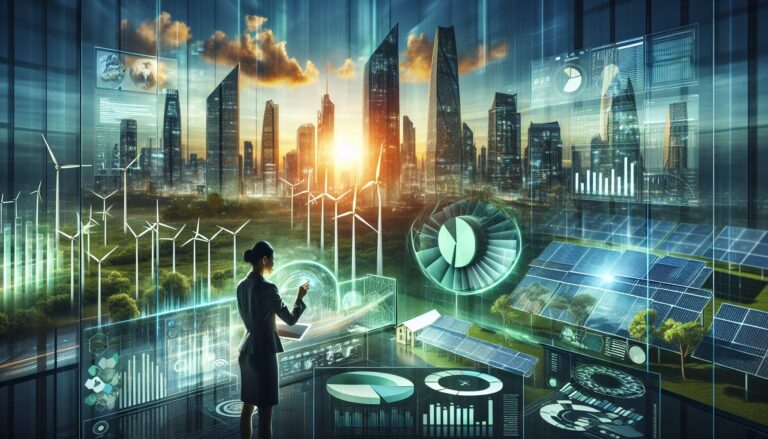In today’s rapidly evolving business landscape, environmental concerns have emerged as a key driver of change. From regulatory pressures to customer expectations, businesses are faced with the urgent need to adopt sustainable practices. In this blog post, we will delve into the recent environmental trends that are reshaping the business world and explore their implications for future strategic decision-making.
The Rise of Green Initiatives
One of the most significant trends is the growing emphasis on green initiatives. Governments around the world are implementing stricter regulations to curb carbon emissions and promote clean energy. This shift has compelled businesses to invest in renewable energy sources and reduce their carbon footprint. Companies that fail to adapt risk losing market share and facing reputational damage.
Consumer Preference for Sustainable Brands
Another important trend is the increasing consumer preference for sustainable brands. Today’s consumers are more environmentally conscious than ever before. They actively seek out products and services from companies that demonstrate a commitment to sustainability. This shift in consumer behavior has forced businesses to incorporate eco-friendly practices throughout their value chains. Sustainability has become a crucial aspect of brand image and customer loyalty.
Circular Economy Approach
The concept of a circular economy has gained significant traction in recent years. Instead of the traditional linear model of production and consumption, the circular economy approach emphasizes recycling, reusing, and regenerating resources. Businesses are beginning to adopt this approach by designing products for durability, facilitating recycling schemes, and reducing waste. The circular economy not only contributes to environmental preservation but also presents new business opportunities and cost savings.
The Role of Technology
Technology has played a transformative role in sustainable business practices. Innovations such as artificial intelligence, Internet of Things, and blockchain have enabled businesses to optimize resource usage, monitor environmental impact, and improve supply chain transparency. This technological revolution has not only enhanced operational efficiency but also empowered businesses to make data-driven decisions for a more sustainable future.
Looking Ahead: A Sustainable Future
As we look to the future, these environmental trends will continue to shape the business landscape. Companies that remain proactive in embracing sustainability will have a competitive advantage and a strong position in the market. However, challenges lie ahead, such as the need for global collaboration, addressing social inequalities, and overcoming resource limitations. Businesses must be prepared to adapt to these emerging challenges while continuing to innovate and remain adaptable.
Conclusion
The current environmental trends are no longer a peripheral concern for businesses; they are now key drivers of strategic decision-making. From the rise of green initiatives to the circular economy approach and the transformative role of technology, companies must navigate these trends to ensure long-term success. By embracing sustainability and aligning their business models with environmental initiatives, businesses can not only improve their bottom line but also contribute to a greener and more prosperous future for all.

